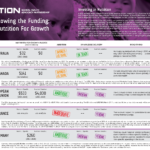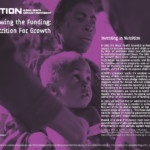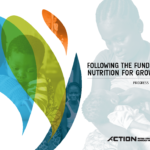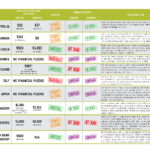Following the Funding: Nutrition for Growth
In 2012, the World Health Assembly endorsed global targets to improve maternal and child nutrition by 2025 — an ambitious vision now reflected in the Sustainable Development Goals. The 2013 Nutrition for Growth (N4G) event — where donors pledged US$4.15 billion for nutrition-specific and US$19 billion for nutrition-sensitive programs — was an essential step on the long-neglected road to support country-owned efforts to improve child nutrition.
ACTION’s scorecard tracks the ambition and delivery of N4G commitments, providing a baseline measurement for future pledge delivery and a progress report for donors who set earlier deadlines. Consistent and accessible reporting is essential for tracking to be accurate and meaningful. While these commitments are critical to meeting global targets, they are indicators for global progress rather than an exhaustive list of funding.
2015 Scorecard

Donors are now accountable to the children they have promised to save. ACTION’s scorecard tracks the ambition and delivery of N4G commitments, providing a baseline measurement for future pledge delivery and a progress report for donors who set earlier deadlines. While the commitments included in the scorecard are critical to meeting global targets, they are indicators for global progress rather than an exhaustive list of funding. For tracking to be accurate and meaningful, consistent and accessible pledge reporting is essential, and donor reporting on nutrition-sensitive funding is anticipated later this year.
Overall, it’s clear that donors must meet existing commitments and also considerably increase nutrition investments if 2025 targets are to be met. A nutrition summit in Rio de Janeiro, Brazil, in the summer of 2016, will be an essential moment for donors to build on momentum created at N4G and solidify their commitment to the fight against global malnutrition.
Download the April 2015 scorecard
Download the September 2015 scorecard
2016 Scorecard

This third edition of the N4G scorecard provides presents sensible analysis of and “asks” to of the 14 largest N4G donors for the 2016-2017 N4G Summit. The donors are Australia, Canada, the European Union, France, Germany, Ireland, Japan, the Netherlands, Norway, United Kingdom, United States, and the World Bank as well as the Bill & Melinda Gates Foundation and Children’s Investment Fund Foundation.
In 2016, we learned that an additional investment of $7 billion each year is needed to achieve four out of the six global targets, on top of current levels of spending. This financial gap must be bridged by national governments, donors, and other stakeholders/mechanisms.
Overall, it is clear that donors must meet existing commitments and also considerably increase nutrition investments to meet globally agreed targets. At an August 2016 summit in Brazil, donors must build on N4G momentum with increased commitments.
Download the April 2016 scorecard
Download the August 2016 scorecard
2018 Progress Report

ACTION’s accountability report and scorecard tracks the ambition and delivery of N4G commitments by key government and philanthropic donors, and it points out what is needed to meet global goals for improved nutrition. Consistent and accessible reporting is essential for tracking to be accurate and meaningful. While these commitments are critical to meeting global targets, they are indicators for global progress rather than an exhaustive list of funding.
Overall, it’s clear that donors must meet existing commitments and also considerably increase nutrition investments to meet globally agreed targets.
2019 Scorecard

Many of the pledges made at the London Summit are set to expire by 2020, and the world risks jeopardizing the progress made so far if global donors, governments, private sector, and civil society do not refocus and renew their pledges for 2021 and beyond. In 2017, Japanese Prime Minister Shinzo Abe committed to host the next N4G summit in Japan in 2020. Ambitious Tokyo 2020 commitments can accelerate progress toward WHA and SDG nutrition targets, but a failure to act will compound gender inequalities; undermine investments in education, health, and economic development; and mean we will not reach the most vulnerable.
This fifth edition of the N4G scorecard presents sensible analysis of the 12 largest N4G donors and an “ask” for each for the Tokyo N4G Summit 2020.

